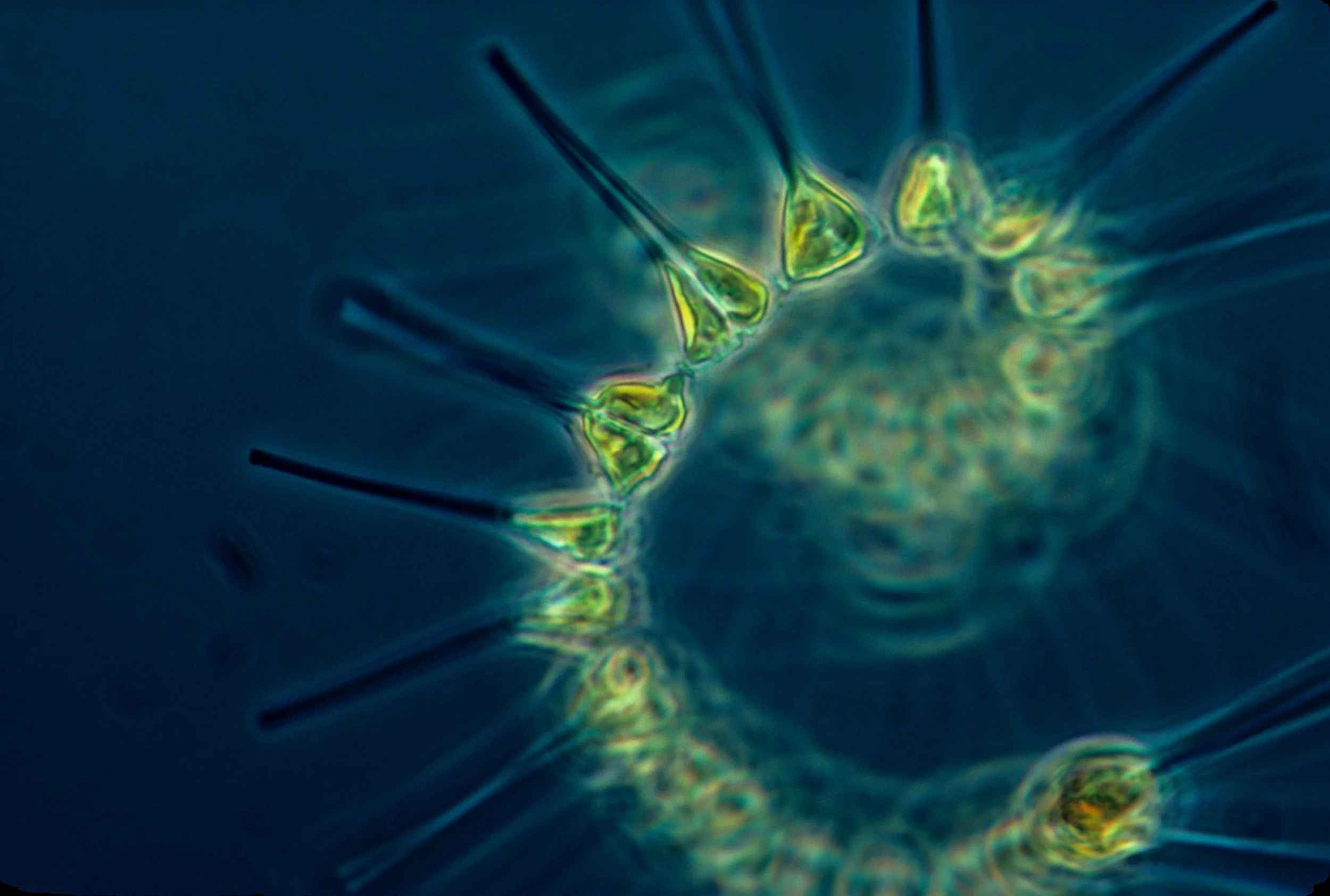The Power of Phytoplankton: How Tiny Ocean Organisms Drive Energy and Sustainability
The Importance of Phytoplankton in the Ocean Ecosystem
Phytoplankton are tiny, plant-like organisms that play a critical role in the ocean ecosystem. They produce up to 50% of the world's oxygen and form the base of the marine food chain, providing food for a wide range of other organisms. In addition, phytoplankton are a vital source of energy that powers the entire marine food web.
How Phytoplankton Produce Energy through Photosynthesis
Like all plants, phytoplankton use energy from the sun to convert carbon dioxide and water into organic matter through photosynthesis. This process is essential for their survival and provides the energy that powers the entire marine food web.
Phytoplankton's Rapid Growth Rate and Efficiency as an Energy Source
Phytoplankton have a rapid growth rate, with some species doubling in number every 24 hours. This makes them an incredibly efficient source of energy and they are often referred to as the "grass of the sea." In fact, some estimates suggest that phytoplankton may be responsible for as much as 70% of the photosynthesis that occurs on Earth.
The Role of Phytoplankton in the Global Carbon Cycle and the Biological Pump
Phytoplankton absorb carbon dioxide from the atmosphere during photosynthesis and incorporate it into their organic matter. When phytoplankton die or are consumed by other organisms, this organic matter sinks to the ocean floor, effectively removing carbon dioxide from the atmosphere and sequestering it in the deep ocean. This process, known as the biological pump, is a critical component of the Earth's carbon cycle and helps to regulate the amount of carbon dioxide in the atmosphere.
Challenges Facing Phytoplankton Due to Human Activities
As atmospheric carbon dioxide levels continue to rise due to human activities, the capacity of the ocean to absorb carbon dioxide is becoming overwhelmed. This is leading to ocean acidification, which can have significant impacts on marine life, including the ability of phytoplankton to photosynthesize.
The Potential of Phytoplankton as a Sustainable Food and Energy Source
Phytoplankton have the potential to be a sustainable source of food and energy for humans. Some species, such as Spirulina and Chlorella, are already being cultivated and harvested for use as nutritional supplements and a source of protein in animal feed. Research is also being done on the potential of using phytoplankton as a biofuel source, as they have a high lipid content that can be converted into fuel.
Aesthetic and Recreational Value of Phytoplankton
Phytoplankton have aesthetic and recreational value, with many species being bioluminescent and creating beautiful displays in the ocean at night. Some species, such as diatoms, are also responsible for creating colorful blooms in the ocean, known as harmful algal blooms (HABs). While these blooms can have negative impacts on the marine ecosystem and human health, they also provide an opportunity for scientific research and can be enjoyed by tourists and recreational boaters.
Conclusion
Overall, phytoplankton are an incredibly important organism in the ocean, providing the energy that powers the entire marine food web and playing a critical role in the global carbon cycle. While they face significant challenges due to human activities, there is hope for their future as we work to better understand their interactions with their environment and develop sustainable strategies for using them as a food and energy source. Protecting phytoplankton and their habitat is not only essential for maintaining the health of the ocean ecosystem but also for ensuring the health and wellbeing of humans and the planet as a whole.


